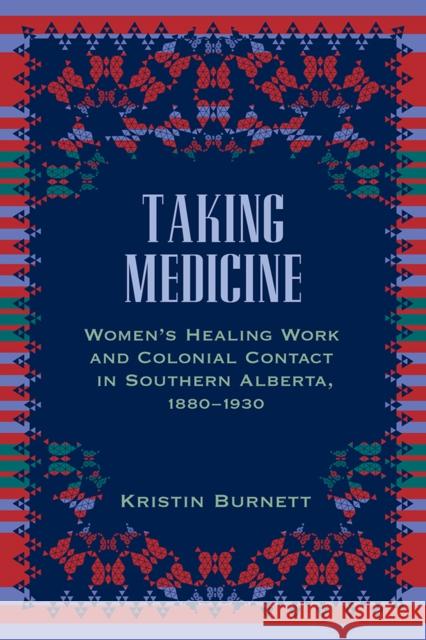Taking Medicine: Women's Healing Work and Colonial Contact in Southern Alberta, 1880-1930 » książka
Taking Medicine: Women's Healing Work and Colonial Contact in Southern Alberta, 1880-1930
ISBN-13: 9780774818292 / Angielski / Miękka / 2011 / 248 str.
Taking Medicine: Women's Healing Work and Colonial Contact in Southern Alberta, 1880-1930
ISBN-13: 9780774818292 / Angielski / Miękka / 2011 / 248 str.
(netto: 130,03 VAT: 5%)
Najniższa cena z 30 dni: 135,14
ok. 30 dni roboczych.
Darmowa dostawa!
The buffalo hunter, the medicine man, and the missionary continue to dominate the history of the North American west, even though historians have recognized women's role as both colonizer and colonized since the 1980s. Kristin Burnett helps to correct this imbalance by investigating the convergence of Aboriginal and settler therapeutic regimes in southern Alberta from the perspective of women. Although the imperial eye focused on medicine men, women in Treaty 7 nations - Siksika, Kainai, Piikani, Tsuu T'ina, and Nakoda - played important roles as healers and caregivers, and the knowledge and healing work of both Aboriginal and settler women brought them into contact. As white settlement increased and the colonial regime hardened, however, healing encounters in domestic spaces gave way to more formal, one-sided interactions in settler-run hospitals and nursing stations. Taking Medicine presents colonial medicine and nursing as a gendered phenomenon that had particular meanings for Aboriginal and settler women who dealt with one another over bodily matters. By bringing to light women's contributions to the development of health care in southern Alberta between 1880 and 1930, this book challenges traditional understandings of colonial medicine and nursing in the contact zone.











